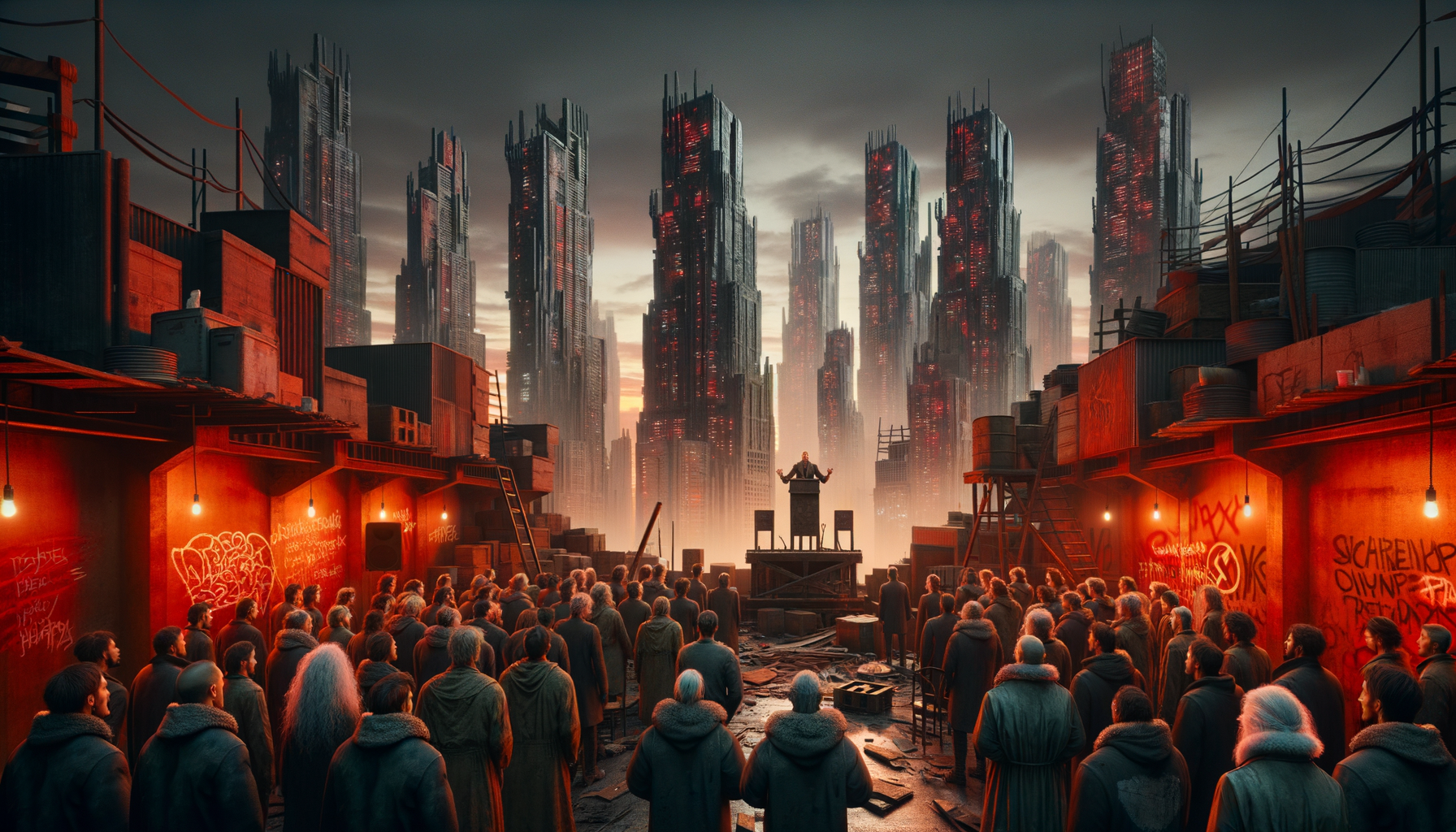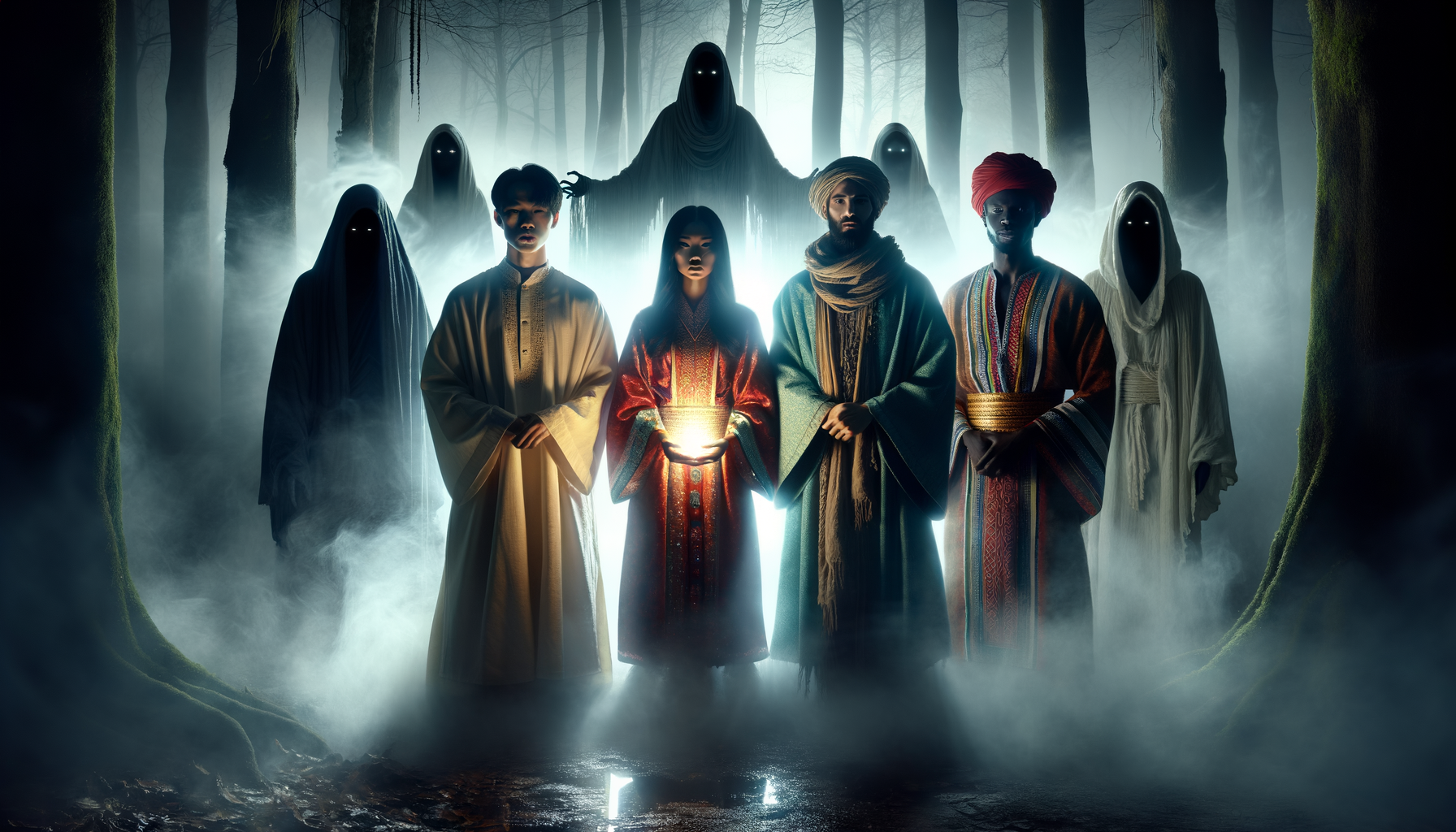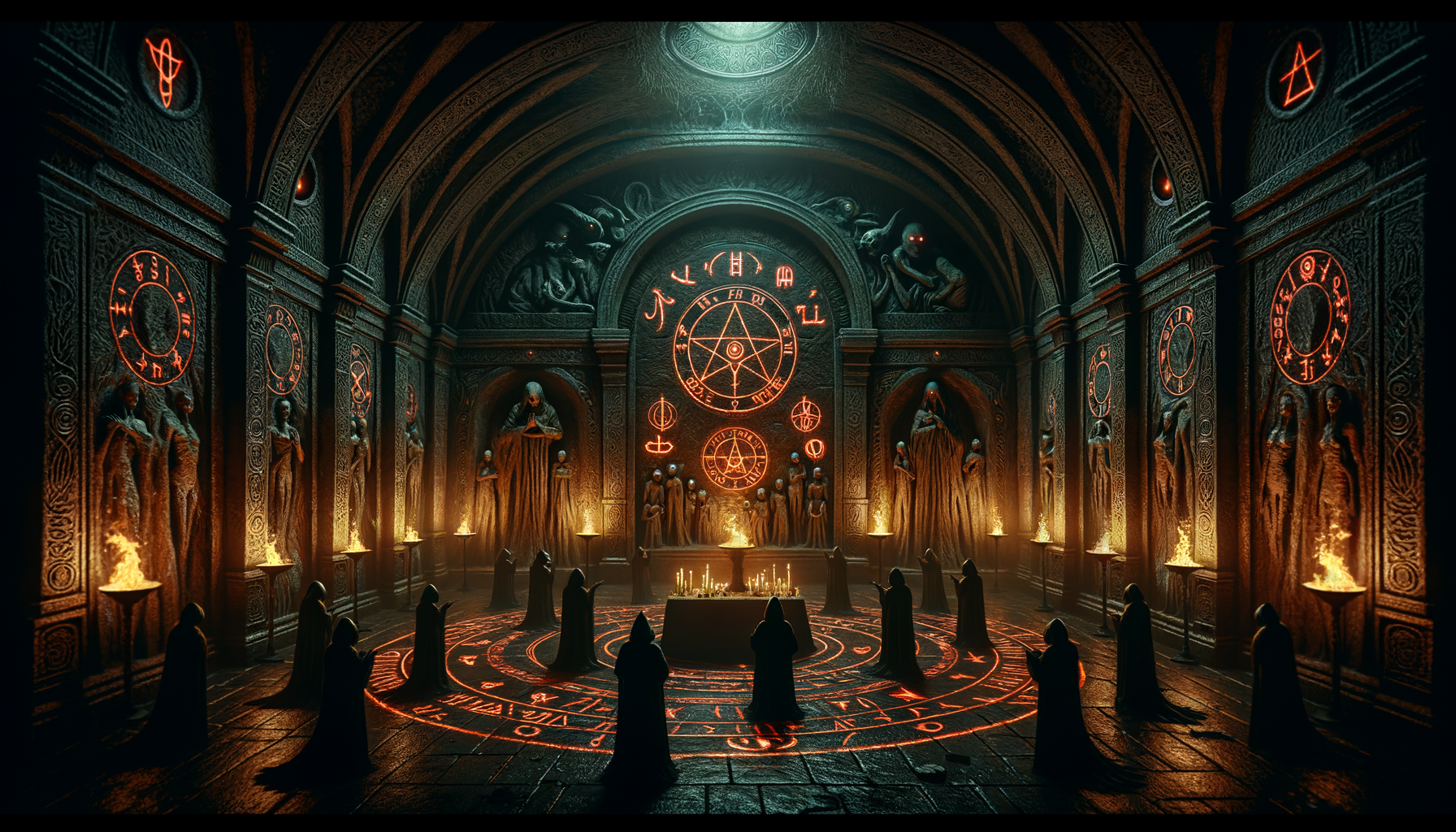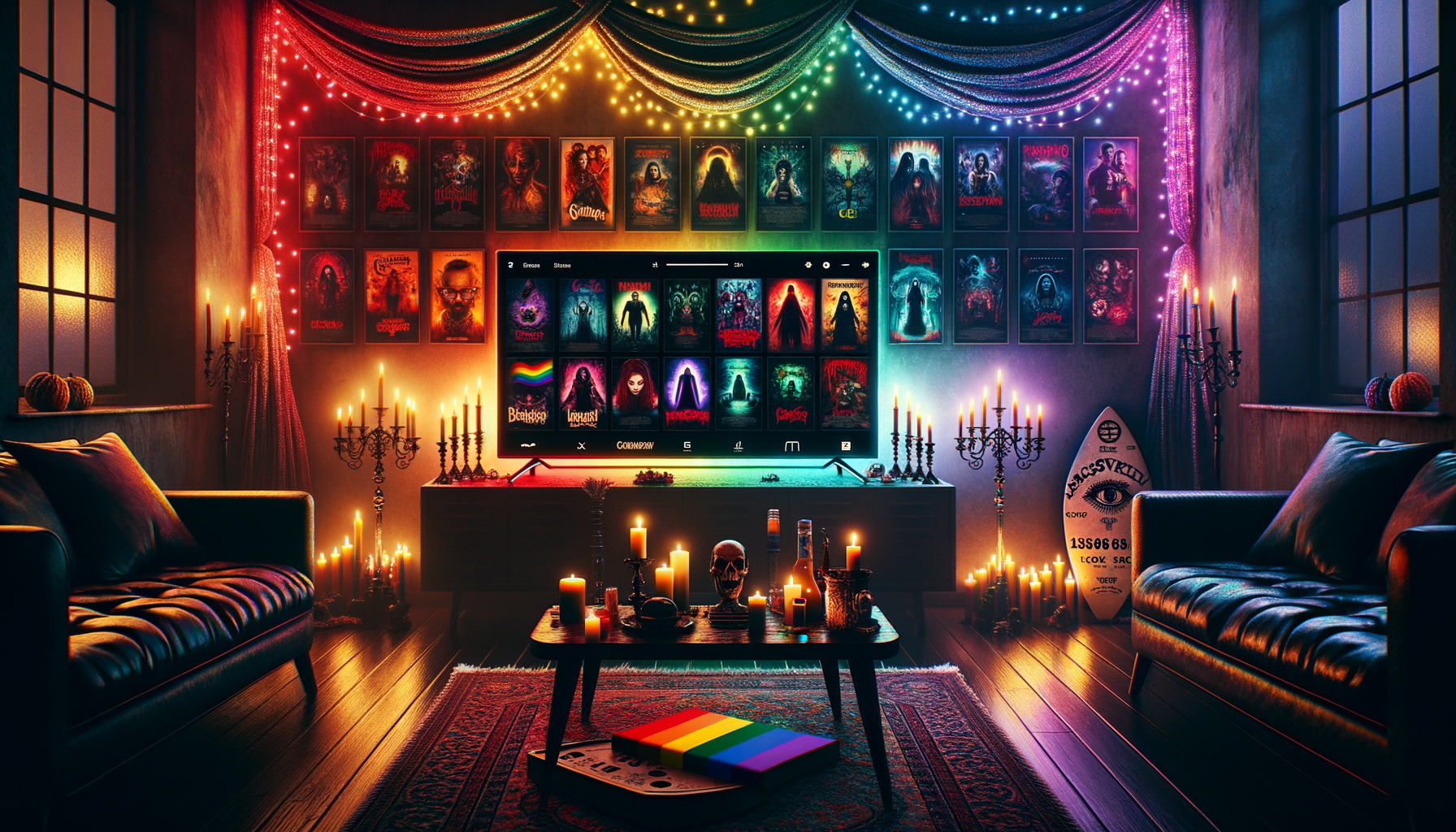Have you ever wondered how the ideologies of socialism find their way into the bleak landscapes of grimdark fiction? The two might seem worlds apart—one advocating for a utopian society where resources are shared equally, and the other depicting the darkest corners of human experience. Yet, it’s this stark contrast that makes their intersection so compelling! Imagine characters grappling with both oppressive regimes and the harsh realities of a brutal world. In this article, we’ll delve into how socialism and grimdark literature intersect, offering rich commentary on societal constructs, power dynamics, and human nature. Let’s embark on this exhilarating journey!
The Core Principles of Socialism in Literature
Brief History of Socialism in Literature
When we trace the history of socialism in literature, we find its roots deeply embedded in the 19th century, particularly with the emergence of utopian novels. These works often depicted ideal societies where equality and communal living were the norms, painting a picture of what a socialist society could look like. As we moved into the 20th century, Marxist ideologies began to significantly influence modern literary works. Writers started to explore more complex and nuanced portrayals of socialist principles, often critiquing the existing capitalist structures and envisioning a more equitable world.
Key Themes of Socialism
Socialist literature is rich with themes that resonate with its core principles. One of the most prominent themes is the class struggle and the fight for equality. Authors delve into the disparities between the working class and the elite, highlighting the systemic issues that perpetuate inequality. Another critical theme is the critique of capitalism and wealth distribution. These works often question the fairness of capitalist systems and propose more just alternatives, emphasizing the need for a more balanced distribution of resources.
Notable Socialist Authors
Several authors have made significant contributions to socialist literature. George Orwell is a key figure whose works, like “Animal Farm” and “1984,” offer sharp critiques of totalitarian regimes and capitalist societies, reflecting core socialist principles. Ursula K. Le Guin is another influential writer whose novels, such as “The Dispossessed,” explore the possibilities of anarchist and socialist societies. Through their narratives, these authors provide profound insights into the ideals and challenges of socialism.
Understanding Grimdark Literature
Defining Grimdark
Grimdark literature finds its origins in fantasy but has carved out a distinct niche for itself. It is characterized by its gritty, dark, and often cynical tone, setting it apart from other genres. The term “grimdark” itself suggests a world where hope is scarce, and moral ambiguity reigns supreme.
Predominant Themes in Grimdark
Grimdark narratives often revolve around moral ambiguity and anti-heroes. Characters in these stories are complex, with shades of gray rather than clear-cut good or evil. Themes of despair, brutality, and survival are prevalent, painting a bleak picture of humanity where individuals must navigate a harsh and unforgiving world.
Key Grimdark Authors
George R.R. Martin and Joe Abercrombie are two of the most influential writers in the grimdark genre. Martin’s “A Song of Ice and Fire” series and Abercrombie’s “First Law” trilogy exemplify the grimdark ethos, with their intricate plots, morally complex characters, and unflinching depictions of a world where power and survival are paramount. These narratives often highlight the darker aspects of human nature and societal structures.
Intersection of Socialism and Grimdark Narratives
Common Ground
Despite their differing tones, socialism and grimdark literature share some common ground. Both genres examine power structures and their impact on individuals and society. They often depict class struggles, albeit in a dystopian setting, where the fight for equality and justice is a central theme.
Contrasts and Conflicts
However, the ideals of socialism can sometimes clash with the cynical view of grimdark literature. While socialism envisions a fair and just society, grimdark often portrays the failure of such ideals in the face of human nature’s darker tendencies. This conflict can result in narratives that either highlight the potential resolutions of these issues or underscore the lack thereof, leaving readers with a sense of unresolved tension.
Symbolism and Motifs
Authors use various settings and characters to represent socialist ideals within grimdark narratives. For instance, a failed utopia in a grimdark world can symbolize the challenges and complexities of achieving a truly equitable society. These stories often use motifs of decay and corruption to critique the flaws in both capitalist and socialist systems.
Case Studies of Socialism in Grimdark Literature
Specific Novels and Their Analysis
One notable example of socialism in grimdark literature is R. Scott Bakker’s “Prince of Nothing” series. These novels embed socialist critique within their grim narratives, exploring themes of power, corruption, and societal decay. Through detailed world-building and complex character arcs, Bakker delves into the intricacies of class struggles and the impact of oppressive systems.
Character Arcs as Social Commentary
Characters in these novels often embody socialist values, striving for justice and equality in grim settings. For instance, protagonists may fight against tyrannical regimes or strive to protect the oppressed, reflecting the core principles of socialism. These character arcs serve as a powerful social commentary on the challenges and potential of socialist ideals.
Narrative Techniques
Authors use various narrative techniques to blend socialism into grimdark tales. Storytelling devices such as unreliable narrators, shifting perspectives, and intricate plotlines highlight class struggles and power dynamics. These techniques allow readers to engage deeply with the complexities of the narratives and the underlying social critiques.
Impact on Readers and Cultural Relevance
Reader Reception
The blend of socialism and grimdark literature elicits varied responses from audiences. Some readers appreciate the nuanced exploration of societal issues, while others may find the bleakness overwhelming. Trends indicate a growing interest in these themes, with a diverse reader demographic engaging with the narratives.
Cultural Significance
The themes of socialism and grimdark literature hold significant cultural relevance in today’s socio-political climate. These works reflect and influence societal attitudes, offering insights into the complexities of power, inequality, and justice. They challenge readers to think critically about the world around them and the systems that govern it.
Future of Grimdark and Socialism
Looking ahead, the future of grimdark literature appears promising, with emerging authors and new trends continuing to explore the intersection of socialism and grimdark themes. Predictions for 2024 suggest a continued interest in these narratives, with authors pushing the boundaries of the genre and delving deeper into the social and political issues that resonate with contemporary audiences.
Conclusion
Grimdark literature and socialism may seem like unlikely bedfellows, but together they offer a unique lens through which we can examine the human condition and societal structures. Whether you are an ardent fan of grimdark’s somber landscapes or a passionate advocate of socialist principles, there’s no denying the profound synergy between these two worlds. As we navigate the volatile socio-political landscapes of 2024, these narratives provide not just entertainment but also a deep, reflective commentary on our lives and the world we live in. Ready to dive into these dark yet enlightening worlds? Pick up a grimdark novel today and see how it challenges your views on society and human nature. Don’t forget to share your thoughts and discoveries with us!




